Realtor Arrested In Iran Over Sale Of Apartemnt To A Dog
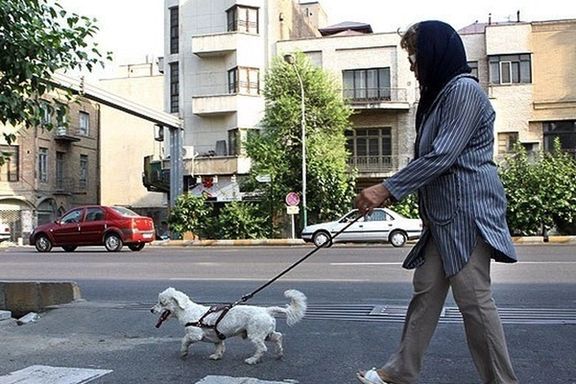
A real estate agency is sealed off and its owner arrested in Iran after a video went viral of the property agency transferring the ownership of an apartment to a dog.

A real estate agency is sealed off and its owner arrested in Iran after a video went viral of the property agency transferring the ownership of an apartment to a dog.
The footage showed an Iranian couple signing a contract transferring the title of their apartment to their small furry white dog Chester.
In the video, which seems like a practical joke, the agent is shown describing the property while Chester's owner places his pawprint on the deed.
Iran’s police issued a statement on Sunday announcing the arrest and the shutdown of the agency, with Tehran’s deputy prosecutor Reza Tabar mentioning “issuing an invalid contract for an apartment unit” as the reason behind the arrest. He added that “this action is illegal and was meant to demean the norms of society.”
The Islamic Republic regime views keeping dogs as a symbol of Westernization that can be dangerous and should be prohibited. Dogs are generally considered 'impure' in Islam and banned in public places by some majority-Muslim countries including Saudi Arabia. Iranian parliamentarians in November proposed a bill banning selling and keeping of pets.
Lawmakers backing the measure claimed the ban was meant to protect public health. While working dogs have always been common in Iran’s rural areas and on farms, keeping pets has only recently become fashionable in urban areas despite occasional police crackdowns.

Iran’s Army Ground Forces Commander Kioumars Haydari has traveled to Moscow as Iranian-made drones are on display in a military exhibition.
Invited by his Russian counterpart, Haydari is scheduled to visit several military technology and education centers as well as holding meetings with officials from the Russian armed forces and the Ministry of Defense.
Several other Iranian military officials have also visited Russia's annual Army International Military-Technical Forum which opened in Moscow last week. Iran’s delegation, led by Deputy Chief of Staff of Iran's Armed Forces, Aziz Nasirzadeh, has been a consistent presence at the event, dubbed Army 2023.
Last week, Russian Defense Minister Army General Sergey Shoigu also visited Iran’s military stand at the Army 2023 Forum, an event where Russia’s leading defense companies displayed some 1,500 of their products.
According to the Moscow Times, the event is an opportunity for Moscow to show off its "war trophies," Ukrainian and Western-made equipment captured on the battlefields of Ukraine.
Iran has previously denied allegations of sending armed drones to Russia during the conflict that ensued after Moscow's invasion of Ukraine. The Iranian government stated that any such shipments, if they did occur, took place before the war. However, Russia has used hundreds of these drones indicating recurring shipments.
Nevertheless, Russia's utilization of Iranian-made drones for attacks on Ukrainian infrastructure and civilian targets has drawn international criticism. Western powers have raised concerns over Iran's involvement in arming Russia with these drones, along with the possibility of supplying additional weaponry and ammunition.
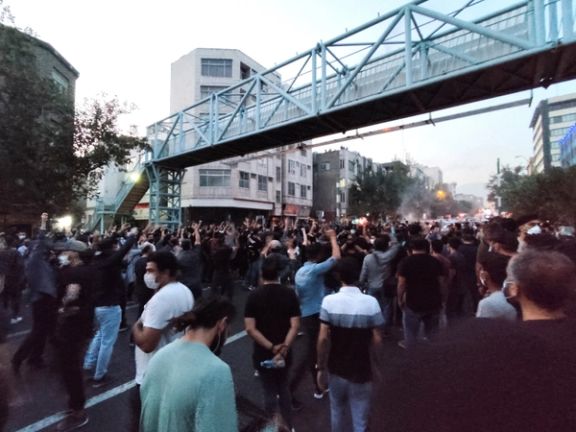
Human Rights Watch has reported mass arrests of Iranian women’s rights defenders by the regime ahead of the anniversary of Women, Life, Liberty protests.
The New York-based rights watchdog said Saturday that regime authorities have arrested at least a dozen activists and intensified pressure on a wide range of peaceful dissidents ahead of the anniversary of the nationwide rallies that swept the country beginning in Spetember 2022, following the death of Mahsa Amini in police custody.
The uprising -- dubbed the Women, Life, Liberty movement -- has been the boldest challenge against the clerical autocracy since its establishment in 1979. The regime brutally cracked down on the antigovernment protests, killing more than 500 people and arresting over 22,000 others.
“Iranian authorities are using their go-to playbook of putting maximum pressure on peaceful dissidents ahead of the anniversary,” said Tara Sepehri-Far, senior Iran researcher at Human Rights Watch. “The arbitrary arrests of a dozen activists are aimed at suppressing popular discontent with ongoing impunity and rights violations.”
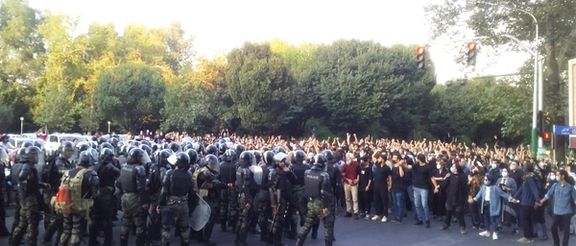
In recent weeks, the Islamic Republic regime has intensified its intimidation campaign to discourage potential unrest, detaining civil and human rights activists and students as well as harassing families of protesters who died during the crackdown, with reports coming from several provinces, including Tehran, Gilan, Kordestan, West Azarbaijan, and Esfahan (Isfahan).
At least 12 people were arrested in Gilan province this week, including five women's rights advocates, a photographer, a poet, a graphic designer, and three pharmacists. The General Intelligence Office of the province issued a statement saying it had arrested a network of 12 people “who were planning to disrupt security” and were participating in trainings aimed at a “soft overthrow” of the regime, without providing any evidence. Hengaw Human Rights Organization, a Kurdish rights group, said Thursday that at least 15 people have been arrested in Kurdish majority cities in the past few days.
The intelligence ministry and the Revolutionary Guard (IRGC) intelligence organization (SAS) have been reaching out to individuals who were arrested during the anti-regime protests. They are warning them not to participate in any demonstrations on the anniversary of the protest movement, according to sources in Iran who spoke to Iran International.
On Thursday, August 17, Supreme Leader Ali Khamenei held a meeting with a large group of Revolutionary Guard commanders and praised them for their performance - which has resulted in the deaths of 500 civilians with thousands more injured and tens of thousands arrested. So far, seven protesters have been executed, and several others face execution. Earlier in the week, hardliner cleric and member of the Iranian Assembly of Experts Ahmad Khatami issued a stern threat against any future protesters, saying that they would be met with forceful suppression, as if the current rounds of suppression are not forceful.
Sepehri-Far noted, “The street protests may have slowed down but the authorities are continuing their crackdown, targeting veteran civil society and human rights defenders,” adding, “UN member states that are in dialogue with Iran should put the rights defenders’ plight at the center of their engagement.”
In addition to arrests and other intimidation tactics, the regime is about to finalize a new hijab bill, whose details have already led to debates even among the regime officials. The enactment of stricter hijab measures is expected to re-ignite further protests. The uprising that was sparked by the death in police custody of Mahsa Amini in September has made it increasingly difficult for the clerical regime to enforce the mandatory Islamic dress code.
To avoid the public backlash over the violent enforcement of hijab laws, the Islamic Republic has recently begun implementing a wide range of measures from public humiliation tactics to using traffic cameras to identify women without hijab.
According to a document obtained by Iran International, the regime has also banned gas stations managers from supplying fuel for women who ride motorcycles, which is forbidden in the Islamic Republic.
Political analyst Ali-Hossein Ghazizadeh said Friday on X that the Intelligence Ministry’s campaign of arrests and intimidation has been “unprecedented” even for the Islamic Republic. He noted that when a society is determined to revolt, security measures can only delay it for so long, predicting that “The people will return to the streets, with even stronger motivations to overthrow this regime. Motivations that the Islamic Republic itself is providing for them.”
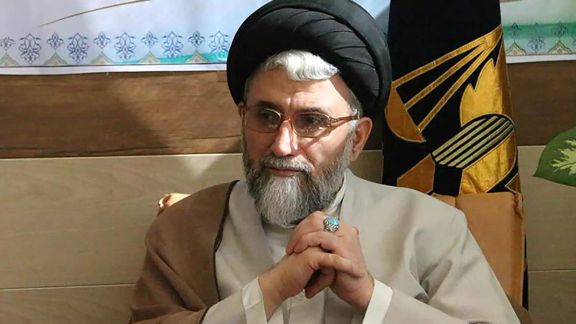
Iran’s minister of intelligence Esmail Khatib said Sunday that secret services are holding “spies from Sweden, France and Britain,” referring to some Western hostages.
Without providing names or details about the detainees, the intelligence minister even claimed that despite foreign pressures some of the “spies have been executed.”
Iran executed Iranian-Swedish political activist and former leader of the Arab Struggle Movement for the Liberation of Ahwaz (ASMLA) Habib Chaab (Asyud) in May.
In January, Iran executed British-Iranian national Alireza Akbari, after sentencing the former Iranian deputy defense minister to death on charges of spying for Britain.
Khatib, who is a hardliner cleric, was addressing the 24th assembly of senior Revolutionary Guard officers in Tehran, where he praised Iran’s multiple intelligence services for working together to thwart “enemy conspiracies” and domestic threats.
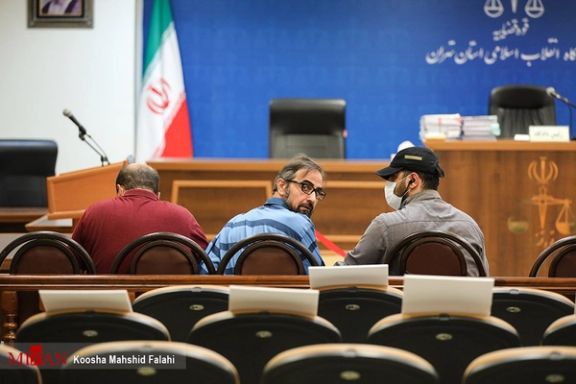
Khatib reiterated the regime’s ideological precept that “the enemy” continues to plot against the Islamic Republic, which has become a “global power.” He claimed that “50 intelligence services” around the world have set up “Iran desks” to be able to confront “a new global power.”
The term “enemy” is a favorite word used by Iran’s ruler Ali Khamenei to refer to the United States, Israel and their allies and partners, but Khatib did not elaborate about who these 50 adversaries around the world are.
Although Iran has released several European high-profile hostages this year, including French and Belgian prisoners held on spying charges, it is not clear how many more are left behind.
French Foreign Minister Catherine Colonna, who spoke in May after the release of two French hostages, said more work is needed “because there are, unfortunately, too many who are detained without reason in Iran.” Apparently, four French citizens and numerous other Europeans remain incarcerated in Iran.
While intelligence minister Khatib boasted about holding European “spies” he did not mention the five American hostages who were released into house arrest earlier this month after a deal with the Biden administration to unblock $6 billion of Iran’s money in South Korea.
The deal has triggered a lot of criticism in the United States, where politicians and some analysts have voiced fear that essentially paying $1.2 billion per hostage will embolden the Islamic Republic and other adversaries to take Americans hostage. Iranian hardliners certainly see the deal as ransom payment by the United States.
A firebrand senior ayatollah, Ahmad Alamolhoda on Friday called the release of Iran’s frozen funds by the US “a humiliation” and a “ransom” in exchange for “their spies.” The cleric is close to Khamenei and is the father-in-law of President Ebrahim Raisi.
Khatib also reiterated that “the enemy’s” aim is to destabilize Iran and reduce participation in the upcoming parliamentary elections in March. The regime has blamed anti-government protests on US and Israeli plots, while it killed more than 500 civilians, injured thousands and has arrested around 22,000 since last September.
Regime politicians and many analysts in Iran believe that voter turnout will be low in March, simply because hardliners prevented other regime loyalists to run both in the 2020 parliamentary and in the 2021 presidential elections. People see no real choice and are deeply angered by the current economic and political crises. They do not believe that Khamenei will change his Anti-West foreign policy and sanctions will continue to increase hardships they face.
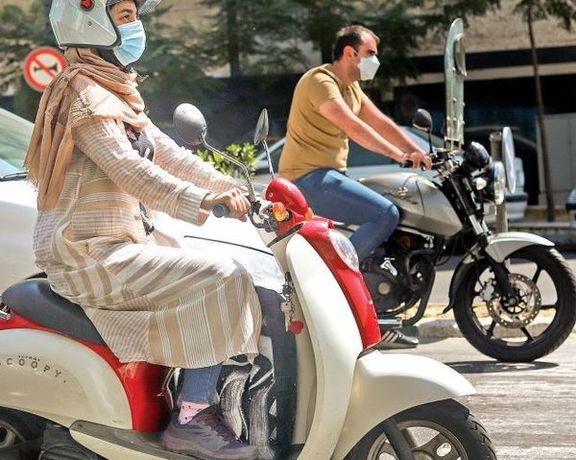
A video on social media shows government security forces in Iran clashing with and detaining a male motorcyclist who was giving a ride to a woman without hijab.
The video shows how law enforcement personnel confiscate a motorcycle from the man, while citizens attempt to thwart their efforts.
In response to the video, a social media user remarked, "It seems like you radical extremists have decided to engage in a full-scale civil war with the great Iranian nation. Be aware that you will face heavy consequences for this, so brace yourselves for the steep toll you will pay."
These events unfold less than a month prior to the anniversary of the tragic killing of Mahsa Amini by hijab police last September, as the regime takes up measures to forestall nationwide anti-regime protests.
In recent months, an increasing number of Iranian women have taken to riding motorbikes on the streets and highways, following the Woman, Life, Freedom protest movement that erupted in September 2022. Riding motorcycles, along with ditching the hijab, has become a courageous act emblematic of the civil rights struggle by women.
Prior to the 1979 revolution that ushered in the Islamic regime in Iran, women were permitted to ride motorcycles. However, in the subsequent years, along with forced hijab, riding motorcycles and even bicycles became restricted.
Nonetheless, numerous Iranian lawyers and activists contend that since Iranian women are permitted to ride motorcycles as passengers, there is no rationale for barring them from being drivers.
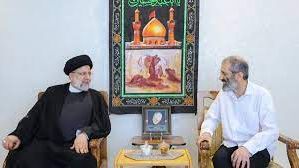
Iran's President Ebrahim Raisi has met with convicted terrorist Assadollah Assadi, who was released from Belgium in May in exchange for a Belgian hostage in Tehran.
A court in Belgium had sentenced Assadi to a 20-year prison term after being found guilty of involvement in a plot to orchestrate an attack on an Iranian opposition event in 2018 near Paris. However, he was released from prison and returned to Iran on May 26 as part of a mediated exchange carried out with the assistance of Oman.
In return for Assadi's release, Iran released Belgian aid worker Olivier Vandecasteele, who had been incarcerated in Tehran for nearly 15 months.
Despite the long trial in Belgium that led to Assadi's conviction, Iran claimed that he was innocent and treated him as a hero upon his return. Assadi was a diplomat in Iran's embassy in Austria and according to evidence submitted during his trial, he used his diplomatic status as a cover to organize the bomb plot.
The president's office reported on Saturday that during the meeting on Friday, President Raisi said, "The proponents of human rights have once again demonstrated their disregard for established legal frameworks." He further claimed that these countries “had violated international norms and principles” by undermining the diplomatic immunity of the Iranian diplomat.
The prisoner exchange marked the culmination of extensive political debates in Belgium, particularly within the nation's parliament. In January, Vandecasteele, aged 42, had been sentenced to 40 years in prison and 74 lashes on charges of "espionage," a verdict that both his family and Belgian authorities criticized as "unfair."
Since May, Oman-mediated negotiations have led to the release of six European citizens held in Iran, while several are still held hostage.